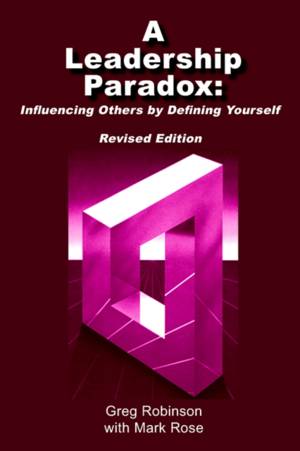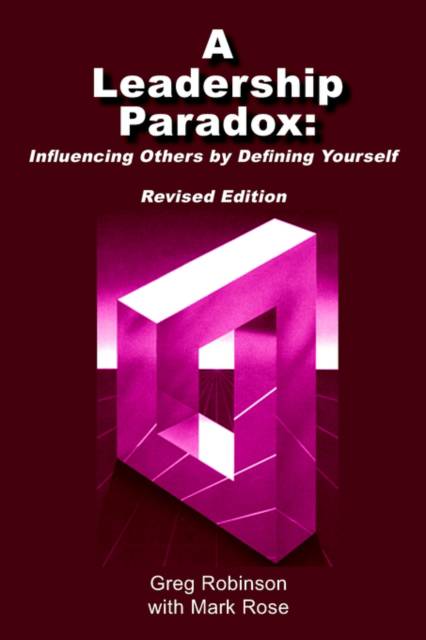
Je cadeautjes zeker op tijd in huis hebben voor de feestdagen? Kom langs in onze winkels en vind het perfecte geschenk!
- Afhalen na 1 uur in een winkel met voorraad
- Gratis thuislevering in België vanaf € 30
- Ruim aanbod met 7 miljoen producten
Je cadeautjes zeker op tijd in huis hebben voor de feestdagen? Kom langs in onze winkels en vind het perfecte geschenk!
- Afhalen na 1 uur in een winkel met voorraad
- Gratis thuislevering in België vanaf € 30
- Ruim aanbod met 7 miljoen producten
Zoeken
A Leadership Paradox
Influencing Others by Defining Yourself
Greg Robinson, Mark Rose
Paperback | Engels
€ 25,45
+ 50 punten
Omschrijving
A fundamental assumption in most of the literature on leadership is that a few will need to control the many. This assumption leads to a search for power but with an either/or mindset: if I have power, then others cannot have as much as me or they will be a threat. Organizations, when anxious, experience limited ability to learn and change. There is an alternative, paradoxical way to understand leadership. A leader is most effective not by controlling others but by defining himself/herself. It is critical for leaders to face their fears, challenge their assumptions and thus be able to change their self-perception. A Leadership Paradox outlines such an alternative view of leadership and provides a model for achieving differentiated leadership.
Specificaties
Betrokkenen
- Auteur(s):
- Uitgeverij:
Inhoud
- Aantal bladzijden:
- 172
- Taal:
- Engels
Eigenschappen
- Productcode (EAN):
- 9781418485153
- Verschijningsdatum:
- 6/10/2004
- Uitvoering:
- Paperback
- Formaat:
- Trade paperback (VS)
- Afmetingen:
- 150 mm x 226 mm
- Gewicht:
- 249 g

Alleen bij Standaard Boekhandel
+ 50 punten op je klantenkaart van Standaard Boekhandel
Beoordelingen
We publiceren alleen reviews die voldoen aan de voorwaarden voor reviews. Bekijk onze voorwaarden voor reviews.









